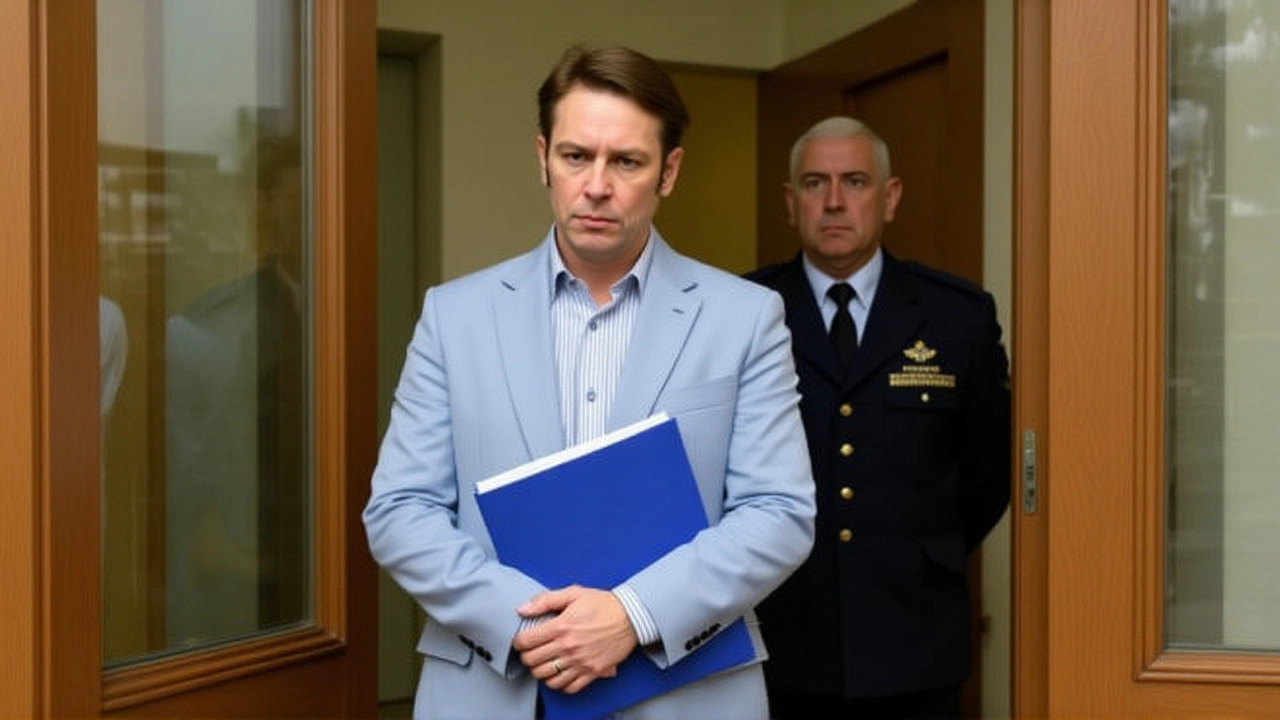When Christian Brueckner, a 48‑year‑old German convicted rapist, walked out of Sehnde prison on September 17, 2025, the world’s attention snapped back to the still‑open Madeleine McCann case.
The departure happened just after 9 a.m. local time, in a black Audi flanked by a police escort and Brueckner’s lawyer. Authorities confirmed his release but declined to disclose his next destination. He left behind an electronic ankle tag that will track his movements, a standard precaution for high‑risk offenders in Germany.
Why Brueckner’s freedom matters
German prosecutors have long pointed to Brueckner as the prime suspect in the 2007 disappearance of three‑year‑old Madeleine McCann from a holiday apartment in the Portuguese resort of Praia da Luz. The case, still one of the most watched missing‑person investigations, has generated billions in media coverage and countless tips.
Prosecutors say cell‑phone data places Brueckner near Praia da Luz on the night of May 3, 2007, when McCann vanished while her parents dined nearby. He lived for years in the Algarve, had multiple convictions for sexual offenses—including against children—and was known to frequent the area’s nightlife.
Yet, despite the circumstantial evidence, German authorities have never secured an arrest warrant. The legal threshold for a formal charge remains un‑met, leaving the case in a frustrating limbo.
Chronology of the recent events
- 2005 – Brueckner rapes a 72‑year‑old American woman in Portugal; later convicted.
- 2019 – German prosecutors publicly name Brueckner as the McCann suspect.
- September 10, 2025 – The London Metropolitan Police files a request to interview Brueckner.
- September 17, 2025 – Brueckner is released from Sehnde prison after completing a seven‑year sentence.
- September 18, 2025 – Brueckner appears at the Braunschweig prosecutor’s office, demanding to speak with Hans Christian Wolters.
Reactions from authorities and the public
German prosecutors said they will continue monitoring Brueckner’s movements and that the ankle tag will trigger alerts if he enters prohibited zones. A spokesperson emphasized that the device does not replace a criminal investigation but adds a safety layer for the community.
The British Metropolitan Police expressed disappointment that Brueckner declined a pre‑release interview, describing the missed opportunity as “potentially vital for establishing a clearer timeline of his whereabouts in May 2007.”
Local residents in Braunschweig and in Algarve towns have responded with a mix of fear and curiosity. Flyers bearing Brueckner’s face have been distributed near schools, while online forums buzzed with alleged sightings. One hostel in Braunschweig reported that a patron tried to purchase a SIM card, prompting staff to alert the media and cause a brief scramble of journalists outside the establishment.
First‑hand accounts and new allegations
Freelance journalist Rob Hyde of The Sunday Times spent two days shadowing Brueckner after his release. Hyde recounted a moment when Brueckner entered the Braunschweig prosecutor’s office and announced, “My name is Christian Brückner and I would like to speak to Mr Wolters.” He was escorted in by two officers, but the meeting concluded without a formal interview.
Meanwhile, a local witness, Helge Büsching, told ITV News he heard Brueckner claim that McCann “was not screaming” when taken from her bed. “I am 100 percent sure he was involved,” Büsching insisted, adding that he had seen “video footage at Brueckner’s house showing sexual violence.” Police have not verified the existence of such videos.
Legal analysts note that even if new evidence surfaces, prosecutors must still meet a high evidentiary bar to secure a conviction in German courts. The standard requires “beyond reasonable doubt,” a threshold that circumstantial data alone often fails to satisfy.
Why the case still matters
The McCann disappearance remains a cultural touchstone, shaping how missing‑child cases are handled internationally. After more than a decade of dead ends, each new development—especially one involving a suspect’s freedom—re‑ignites public debate about cross‑border cooperation, forensic technology, and the rights of alleged perpetrators.
Critics argue that allowing Brueckner to move freely, even under electronic surveillance, risks re‑victimising families and witnesses. Supporters of the monitoring system point out that Germany’s ankle‑tag program has reduced repeat offenses among high‑risk offenders by roughly 15 % over the past five years, according to a 2023 federal study.
What’s next for the investigation?
German prosecutors have said they will request a new judicial review of the existing evidence, hoping to obtain a warrant for a more thorough search of Brueckner’s former residences in Algarve. Simultaneously, the British authorities are reviewing the phone‑data logs from May 2007 to see if any gaps can be filled with newer analytical tools.
In the meantime, Brueckner remains under constant electronic watch. His lawyer declined to comment on where he intends to live, but a local shelter reported that he spent several hours there before a flat was secured for him.
For the McCann family, the release is “another painful reminder that justice has not yet been served,” as father Gerry McCann said in a recent interview. The worldwide community continues to hope that the combination of technology, international cooperation, and public vigilance will finally close the chapter.
Key facts
- Suspect: Christian Brueckner, 48
- Release date: 17 Sep 2025 from Sehnde prison
- Previous conviction: 2005 rape of a 72‑year‑old American woman in Portugal
- Monitoring: electronic ankle tag
- Primary investigation body: German prosecutors (lead investigator Hans Christian Wolters)
- Case focus: disappearance of Madeleine McCann on 3 May 2007 in Praia da Luz, Portugal
Frequently Asked Questions
How does Brueckner’s release affect the McCann investigation?
The release means prosecutors lose the immediate leverage of a custodial suspect, but the ankle tag allows authorities to track his movements. It also forces a renewed push for forensic evidence, as interview opportunities become limited.
What evidence links Brueckner to the night of May 3, 2007?
German prosecutors cite cell‑phone location data that places Brueckner within a few hundred metres of the McCann holiday home, his residence in the Algarve at the time, and his prior sexual‑offense record. No direct eyewitness testimony has been confirmed.
Why hasn’t an arrest warrant been issued?
German law requires a high evidentiary standard for arrests in serious crimes. While the phone data is compelling, prosecutors say it is still circumstantial and does not definitively prove Brueckner’s involvement.
What role is the British Metropolitan Police playing?
The Metropolitan Police have been coordinating with German authorities, requesting interviews and sharing forensic analyses. Their recent request to speak with Brueckner was denied, prompting criticism from UK officials.
Could new technology revive the case?
Advances in DNA recovery, geolocation analytics, and AI‑driven video enhancement may uncover missed clues. Both German and British investigators have pledged to re‑examine the evidence with these tools.






Written by Griffin Callahan
Hi, I'm Griffin Callahan, a sports enthusiast with a particular expertise in tennis. I've dedicated years to studying the game, both as a player and an analyst. My passion for tennis has led me to write extensively about the sport, covering everything from player profiles to match analyses. I love sharing my knowledge and insights with fellow tennis fans, and I'm always eager to engage in discussions about the sport we all love.
All posts: Griffin Callahan